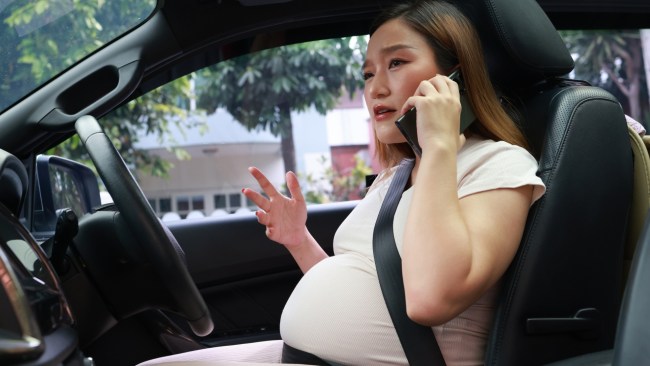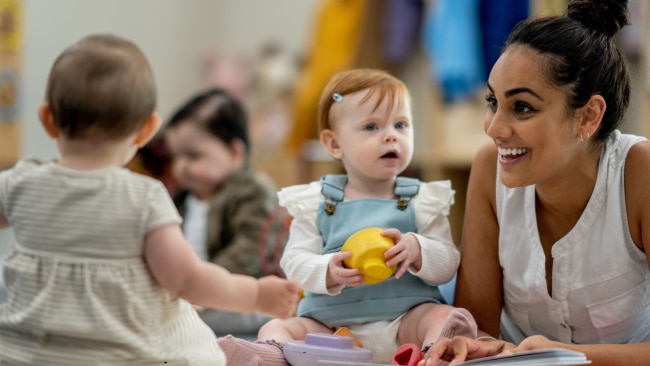How a rare genetic diagnosis changed this dad's life
"With only 23 other documented cases in the world, we weren’t sure what this would mean for his future," Aussie dad Patrick writes for Kidspot.
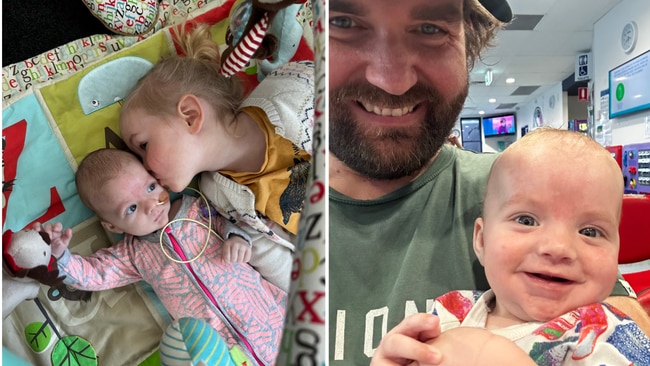
Baby
Don't miss out on the headlines from Baby. Followed categories will be added to My News.
It's 8:20 am on a weekday morning, and I’m lying in the dark listening to our almost-six-month-old wriggling and fussing, refusing to sleep.
The familiar chaos of our toddler being wrangled to daycare echoes from outside the room.
The fan above my bed spins calmly overhead, but I’m almost at the end of my tether. Then the soft whir of our baby's feeding pump sounds, and I drag myself up to try and get him to sleep one more time.
Our journey with parenting took an unexpected turn when our second child was born. Little did we know that the beautiful chaos of raising two kids would transform into a profound struggle with a rare genetic syndrome.
The nasogastric tube, a lifeline that has become both a source of comfort and an added layer of complexity, has been a constant companion for the past several months, and has brought challenges we never imagined.
Simple things we once took for granted - like holding our baby without worrying about a tube snagging and being pulled out of their nose - became distant memories.
Our world changed.
Want to join the family? Sign up to our Kidspot newsletter for more stories like this.
RELATED: Mum reacts to finding out her friend copied her baby name
"The hospital felt like our second home"
The difficulties of parenting two kids were expected, but the intricacies of dealing with a rare genetic condition blindsided us. The first 10 days after our baby's birth seemed promising. He was born slightly ahead of schedule, and while his weight raised initial concerns, everything seemed manageable.
However, soon signs of trouble emerged.
Our baby's feeding issues escalated rapidly. He stopped feeding from the breast, lost coordination and energy, and every attempt to feed him turned into an ordeal. He lost weight, and our paediatrician, while not alarmed, was very alert.
And then our son started projectile vomiting after every feed.
The journey that followed has been a relentless struggle — multiple tests, emergency room visits, and the introduction of a nasogastric tube to facilitate feeding. The hospital felt like it was our second home.
As we adjusted to this unexpected way of life, the impact on our mental health became apparent. The constant worry about the tube, the challenges of bottle feeding, and the persistent vomiting created an emotional rollercoaster. The tube, initially a source of hope, became a reminder of our baby's fragile state. And the constant fear of vomiting coupled with the helplessness of not being able to prevent it took a toll.
Amidst the hardships, we found moments of solace. A change in our approach around the eight-week mark allowed us to treat our baby like, well, a baby.
Giving him cuddles, talking, playing, and laughing with him brought a positive shift. He was engaging with us, smiling and laughing back. We even dared to take a family holiday, a road trip filled with both challenges and moments of quiet amid the chaos.
Returning home, the struggles persisted. Our baby's vomiting, initially showing signs of improvement, worsened again. More tests, another hospital stay, and the revelation of a rare genetic syndrome named Maternal Uniparental Disomy of Chromosome 20 (MUDS) followed.
The diagnosis, while providing some answers, brought with it a new set of challenges. With only 23 other documented cases in the world, we weren’t sure what this would mean for his future.
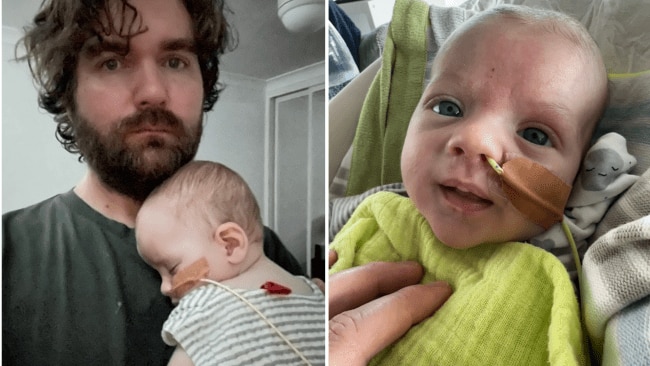
RELATED: Mum claims she was humiliated on plane over dirty nappy
"We hope for a better future"
The diagnosis did shed light on the reasons behind our baby's growth challenges, low muscle tone, and feeding difficulties, and that provided a sense of relief. But the journey forward isn’t an easy one, filled with appointments with specialists, growth hormone treatment, speech pathologists, feeding therapists, and a myriad of uncertainties.
We were supposed to have surgery to replace the nasogastric tube with a PEG tube, but it was cancelled. And that became a breaking point for us. It was a milestone we didn’t know we needed, and when it was taken away, our emotional walls crumbled. The impact on both of us, as parents, became palpable. We tried to shield our children from the emotional weight, but our struggles were evident.
Silent tears would stream out, or we’d go into another room and sob so the kids wouldn’t see it.
Then we’d pull ourselves together and continue parenting.
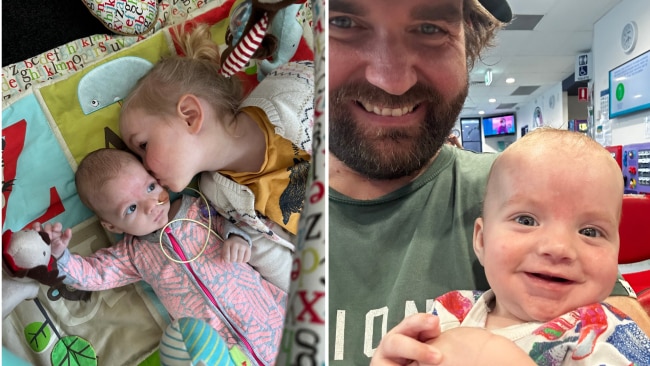
Now our daily life revolves around the hope for a better future. The immediate challenges are daunting, but the promise of adolescence bringing positive outcomes for those with MUDS provides a glimmer of hope. As we take it day by day, we strive to be the best parents we can be, finding joy in our baby boy's infectious laughter and cherishing the soft moments of kindness with his older sister.
The road ahead is filled with uncertainties, appointments, and therapies and we yearn for that magic fix that will make it all better.
But our kids, a beautiful and smiley boy and a confident kind-hearted girl, remain our source of strength amidst the turmoil.
So we persevere.
More Coverage
Originally published as How a rare genetic diagnosis changed this dad's life



